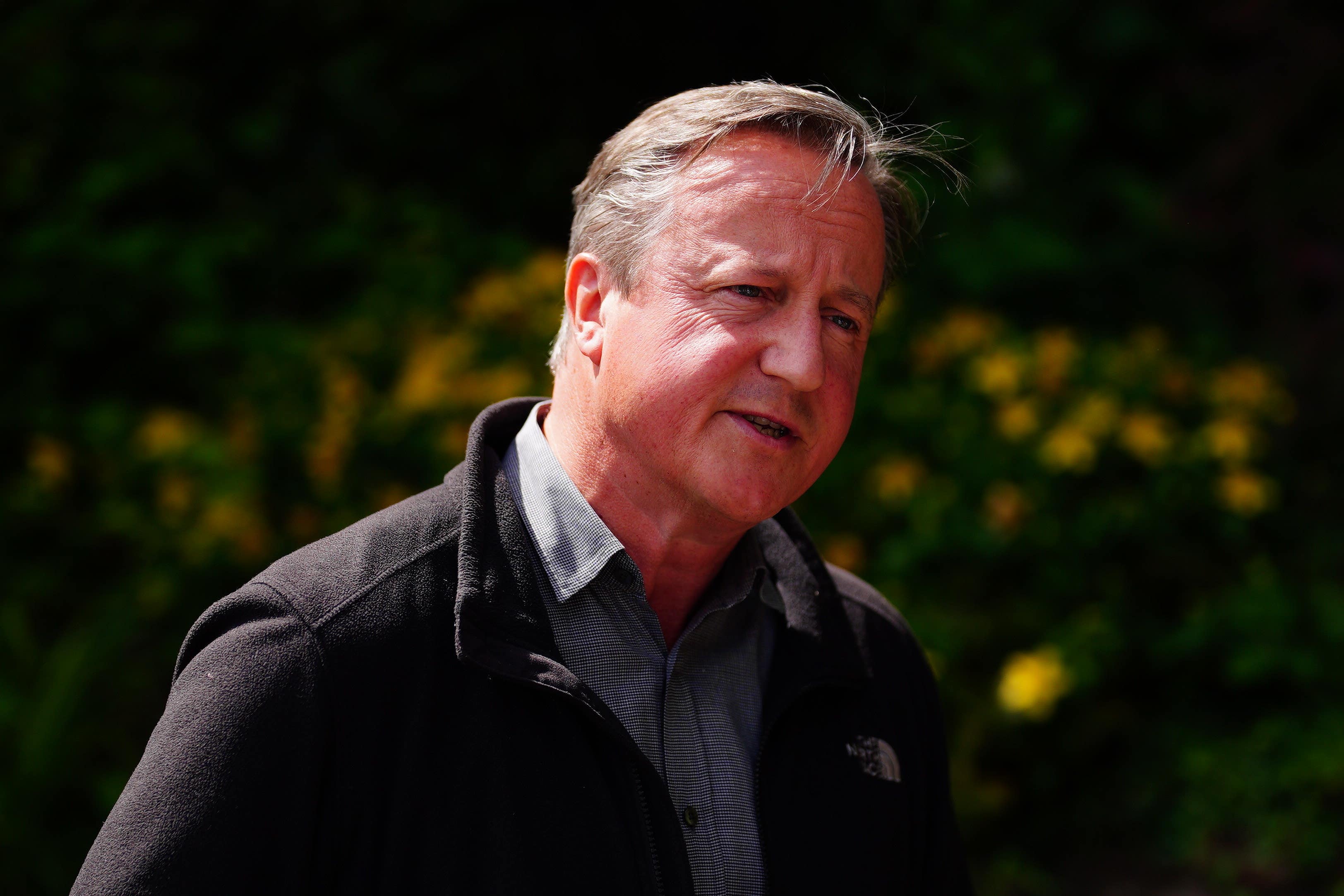Lord Cameron takes up role to help develop treatments for rare genetic diseases
The former prime minister said the cause is close to his heart, having lost his son Ivan to a rare genetic disease 15 years ago.

Your support helps us to tell the story
From reproductive rights to climate change to Big Tech, The Independent is on the ground when the story is developing. Whether it's investigating the financials of Elon Musk's pro-Trump PAC or producing our latest documentary, 'The A Word', which shines a light on the American women fighting for reproductive rights, we know how important it is to parse out the facts from the messaging.
At such a critical moment in US history, we need reporters on the ground. Your donation allows us to keep sending journalists to speak to both sides of the story.
The Independent is trusted by Americans across the entire political spectrum. And unlike many other quality news outlets, we choose not to lock Americans out of our reporting and analysis with paywalls. We believe quality journalism should be available to everyone, paid for by those who can afford it.
Your support makes all the difference.Former prime minister Lord David Cameron has announced he is taking up the role as chairman of the advisory council for a body aimed at developing new treatments for rare genetic diseases.
The Oxford-Harrington Rare Disease Centre is a partnership between the University of Oxford and the Harrington Discovery Institute in Cleveland, Ohio.
Writing in The Times, Lord Cameron said the cause is close to his heart, having lost his son Ivan to a rare genetic disease 15 years ago.
As prime minister, he launched the 100,000 Genomes Project in 2012, where the genomes of 100,000 NHS patients with a rare disease or cancer were sequenced.
As a father I know all too well the impact of rare diseases
He called establishing Genomics England, the company set up to deliver the 100,000 Genomes Project, one of his “proudest moments as PM”, and said out of all the causes he has advocated for: “This one really is personal.”
Lord Cameron wrote that he intends to use his role to help bring together “distinguished experts” in order to “develop 40 new treatments for rare diseases in the next decade”.
“As a father I know all too well the impact of rare diseases,” he said.
“We miss our Ivan every day — all these years on, our loss is still so raw.
“But the steps we are taking now means that, in the not-too-distant future, families like ours will have hope. It is vital that we try to give it to them.”